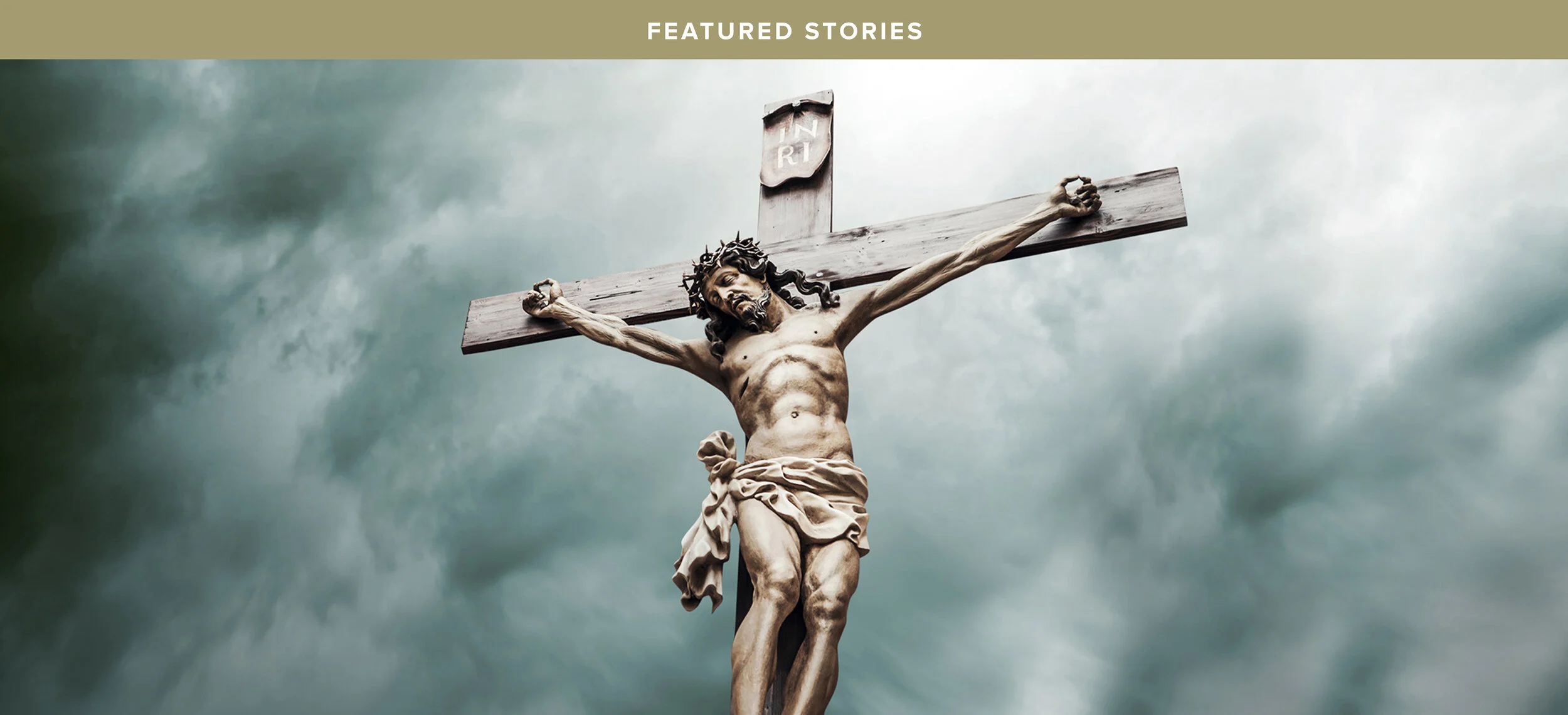The Cross or Nothing
A few months ago, I read the story of Tara Condell, a millennial Manhattan nutritionist who took her own life after publicly posting her suicide note. Our society has no shortage of these stories – but this one was visceral because Tara is emblematic of a new ‘Lost Generation.’
Her note is a fine summary of the atomized materialism that passes for our culture’s philosophy of life, embraced by young adults who prefer hedonistic gratification to the demanding faith of their forefathers. Happiness is paramount, and is measured in sensations: a favorite song, a nicotine high, a ‘very good dinner,’ and melancholy memories of sunset vistas. Her note betrayed a nebulous, quietist conception of an afterlife among the clouds, which was little better than a drug for her numbness. She epitomizes what E.M. Cioran termed the ‘winded civilization’ – exhausted, unassertive, feeling but unable to conceptualize suffering in any terms but as an inconvenience. Life itself had become inconvenient. No amount of fine dining, music and fellowship could cure her because it amounted to nothing. If one were to read Ecclesiastes without the final paragraph, one would get much the same feeling.
I do not blame Tara. I pray that her soul transcends the dark wood she entered in despair. Our society bears collective responsibility for banishing objective notions of the Good, the True, and the Beautiful. Selfishly chasing fleeting pleasures fuels our economic and socio-political life. And when one steps back and asks, “why?” and “what is the logical end of this life?” one can do, apparently, two things. The easy option is to shelve the question and keep ‘living life,’ to keep grasping without purpose, to flee suffering and drift along the path of maximum comfort and pleasure. But one can follow the aesthetic path only so far, before one is exhausted by the vanity and boredom of it all. In due course, one must confront the second, which is choice in the face of the abyss.
When finally asking “why,” in earnest, we face the prospect of nothingness or transcendence. We stand above an abyss. We cannot go back, nor look away. The question is not whether to leap. Leap we must, but in what way? Do we resign ourselves to the yawning black, or do we reach to the heavens for the helping hand of God, the source of the light?
Better writers than this one have pondered this question before, and Joseph Pearce has alluded to it in his own writings concerning Catholic literary lights. In 1884, Barbey d’Aurevilly penned a response to J. K. Huysmans’ novel À Rebours (Against Nature). The book is a veritable catalogue of decadence and solipsism, reminding us of the dangers of a fragmented existence possessing no continuity with order or purpose. Mr. d’Aurevilly wrote:
A mortal languor pervades this book. The miserable little castle of cards – his little cardboard Babel built against God and the world, collapses on top of him… The Revolutionary has felt his own nothingness…
‘After Les Fleurs du Mal,’ I once told Baudelaire, ‘you have only to choose between the muzzle of a pistol and the foot of the cross. Baudelaire chose the foot of the cross.
Will the author of À Rebours choose it also?”[1]
In despair, one can fall into it the abyss as Tara has done. Or one can reach for the light, the source of order which transcends the nothingness. Huysmans chose the latter, choosing the Cross and converting to the Faith.
We are called to bear our own cross, to take it up as did Christ. Or we can embrace nihilism and its suicidal ends. We must leap. By putting off that decision – refusing to choose – we continually run along the shores of Acheron, stung by the wasps of our own vanity and chasing after the phantoms that never give us peace or fulfillment. To paraphrase Archbishop Fulton Sheen, the hardest cross to bear is having no cross at all.







